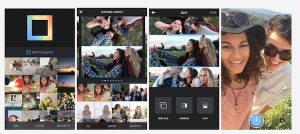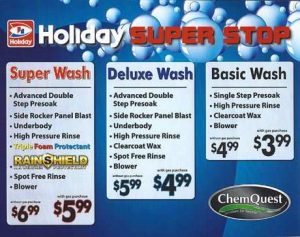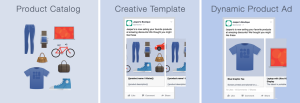
Social marketing is one of your most powerful tools for customer acquisition. It can be cheap, effective, and best of all, it’s a resource that actually grows in value and momentum over time when properly applied.
In many ways, Facebook is at the helm of this, being one of the most widely used social platforms in the world. It’s free, offers custom pages for businesses, and users will look for you – they’ll likely even think it to be odd if your business doesn’t have one!
Chances are, you’ve already made your Facebook page. It’s here that you’ll begin engaging with subscribers, building your audience, and ultimately pushing social traffic back to your website (which means subscribers!).
So how do you do this? Here are four big lessons when it comes to Facebook marketing. (It’s important to note that here we’re focusing on non-paid/free marketing on Facebook in this post!)
1. Be Engaging with Meaningful Content
The first rule of Facebook marketing is really a rule of proper Facebook page management in general: craft meaningful content that your audience will appreciate.
It starts with remembering that your page’s followers are mostly likely going to be similar, if not identical, to your subscribers in tastes, values, and interests. Depending on your niche, this tells you a lot about what type of content to post. If you’re focusing on a specific type of standard (like cruelty-free or vegan products) or a specific type of product (like razors), curate your Facebook feed to topics related to this content.
For example, if your subscription business is related to a specific past-time, like golf or video games, your feed should include posts that deal with those topics. Some examples might be:
- New stories relating to the interests
- Memes, (easily sharable images that relate culturally to your topic)
- Your blog posts
- Questions, quotes, or anecdotes that relate to your interest
2. Use Compelling Imagery
At any point, there are thoughts of stories, posts, and statuses cluttering a potential customer’s newsfeed. How do you stand out in all this clutter?
One tip that has worked especially well for pages we’ve managed is to use compelling, eye-catching imagery as much as possible. Sometimes, all you need to grab the engagement for your post is that especially bright or intriguing picture. Rather than sharing a plain-text post about your page’s interest, consider finding a photo or making a photo to share with it (make your own meme!).
For example, if your page is focused on travel or exotic destinations, include a picture of the place you’re talking about in your post, along with the factoid and piece of content you’ve written. If your page has something to do with food, share pictures along with the recipes you post about.
3. Test (and Re-Test) Post Times
Facebook is accessed by millions of people, and every time they log in, there are thousands of stories in their feed waiting to be seen. That’s because the majority of posts come during “peak times,” when most pages, people, and stories are being shared. Post times, as such, play a large part in garnishing Facebook engagement. The post time is the actual time of day you post to your Facebook page, such as 7am, 12pm, or 7pm.
Generally, we’ve found that posting outside of peak times, which is basically 10am-6pm, can be a simple way for your page to find more engagement (though it should be tested with your audience).
The rationale for posting outside of peak times deals with two main elements:
- Posting outside of peak times usually means posting when other businesses are not in the office: This means less competition.
- Posting outside of peak time, especially at night, can capture your audience when they are winding down for the day: This means they aren’t as distracted as they are usually at work, and they aren’t getting ready for the day like in morning.
Of course, this also depends on your audience and their sleep/habits schedule. The rule here is to test, retest, and retest the engagement on your posts at different times. Be sure to read up on Facebook page metrics and how to judge your posts.
4. Be Present & Human with Your Brand
Another big way to inspire engagement on your Facebook page is to be present with your brand. This not only means sharing engaging content, like talked about in step 1, but also to write in the correct voice (your brand’s voice!), interact with page comments, post comments, and page messages. When a page fails to respond to comments, questions, or concerns, it speaks volumes to new people hitting the page: this page is not active, or isn’t run by a “human.”
This best practice directly relates to proper customer service on social media, and how that sets perceptions and expectations around your brand. An active, engaging, and interesting Facebook page for a product should be fast to reply and provide great answers to questions submitted by followers or customers. By doing so, you show potential and existing customers you care.
Make the Most of Your Facebook Page
Leveraging these four principles, begin applying changes to your Facebook page. Keep track of how things change for the better or worse, and always come back to core assumptions when making updates.
Have a strategy that works especially well for your business? Tell us in the comments below!
(299)






